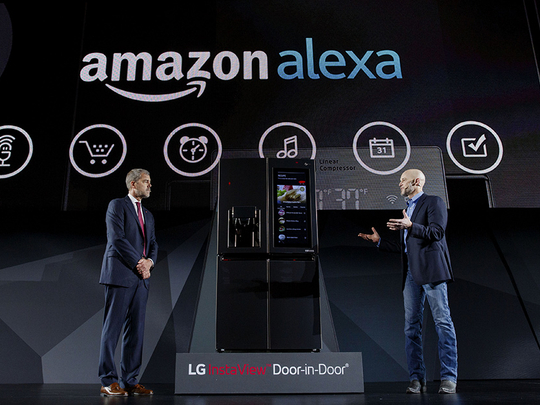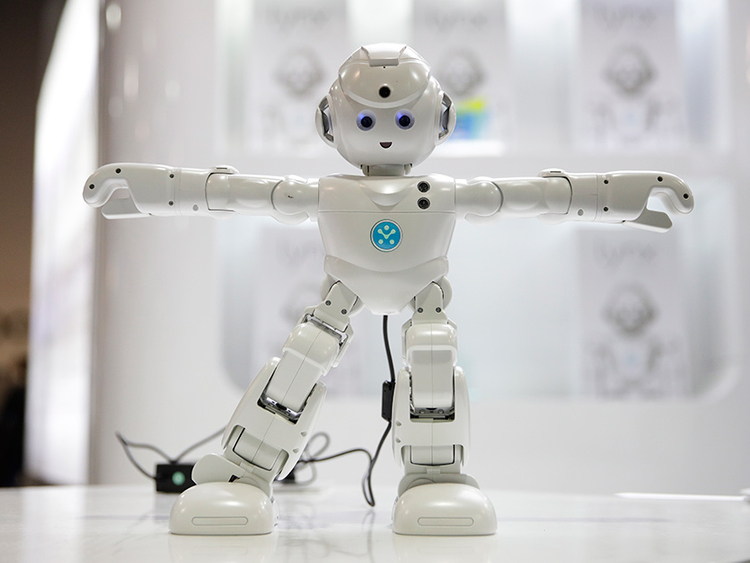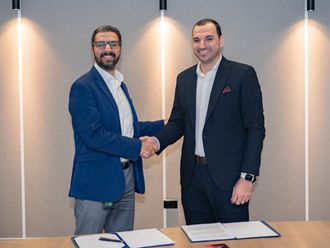
Dubai: The recently concluded consumer electronics show — CES 2017 — held in Las Vegas highlighted that AI (Artificial Intelligence) is becoming the backbone to app-integrated interactions for virtually every complex computerised product at the show.
The show showcased over 30 products with Amazon Alexa’s voice-based virtual assistant integrated, from third party smart speakers to smart appliances, robots and cars. No other brand has had as much presence this year.
Voice services allow users to make hands-free control of devices and can use commands to on/off smart bulbs, stream music, check the weather, order food, ask questions and do web searches by asking questions, control TVs, thermostats and other things.
Amazon has launched two speakers — Echo and Echo Dot in the market but it is not officially launched in the region. Amazon claims to have sold about 5 million Echo speakers to date.
It looks like Alexa is set to become the operating system for voice assistant. Alexa, alongside other smart home players, looks set to catapult the smart home into mainstream awareness this year and beyond.
Andrew Ng, Chief Scientist at Baidu, claimed at the show that ‘AI is the new electricity.’ The number of verticals now finding ways to integrate machine learning at the show was huge.
Winning the race
It does not mean that other voice services like Google’s assistant, Apple Siri and Microsoft Cortana are not in the race but Amazon is winning the race and it was evident at the show.
Some of the major companies that have announced deals with Amazon at CES were LG which showcased robots and Smart Instaview fridge, Ubtech’s latest robot — Lynx, VW’s connected cars for North American market, Huawei for its Mate 9 smartphone, Ford in Ford SYNC 3 AppLink, smart speakers from Lenovo and Monster, washers and dryers from Whirlpool, lamps from General Electric and robotic vacuum cleaners from Samsung, Hyundai’s connected car and Chinese robotics group Ubtech, the home audio group iHome and Dish Network for its video recorder.
Microsoft’s Cortana will be on Renault-Nissan’s connected car hub in Nissan Leaf, will power a voice-assistant speaker for kids and families being introduced by Mattel. Samsung’s smart fridge uses its own Tizen operating system for voice services.
Research firm Juniper believes Amazon’s innovative approach, use of cloud services through Amazon Alexa, and its ability to capitalise on its e-commerce presence gives them a leading position.
Research author Sam Barker said that the company has managed to maximise its value proposition for Alexa by partnering with a large range of complementary players in the market, whilst utilising its own cloud platform to set Echo and Alexa apart from its competitors in terms of functionality.
New skills
Steve Rabuchin, company’s head of Alexa, said at Huawei’s press meet that by opening up the system in 2015 had let to developers add new skills to Alexa to make it more useful.
“We continue to be thrilled with the response we are getting from developers and the momentum of Alexa. We‘ll never be able to build all the potential devices out there between smart home and wearables, and automobiles,” he said.
Mike George, vice president of Amazon.com’s Alexa unit, said that since opening up the platform for third-party developers, more than 7,000 downloadable applications (skills) have been created to perform new tasks.
Gartner predicts that, by 2019, 20 per cent of all user interactions with the smartphone will take place via virtual personal assistants (VPAs).
“The role of interactions will intensify through the growing popularity of VPAs among smartphone users and conversations made with smart machines,” said Annette Zimmermann, research director at Gartner, said in a statement.
Apple’s Siri and Google Now are currently the most widely used VPAs on smartphones.
“VPAs’ usage is bound to accelerate as they add many new features, including integration for business services, further language support and appear across more devices,” said Jessica Ekholm, research director at Gartner, said in a statement.
Complex tasks
Gartner expects that, by 2019, VPAs will have changed the way users interact with devices and become universally accepted as part of everyday life. Today, VPAs are fulfilling simple tasks such as setting the alarm or retrieving information from the web, but in the near future, these systems will be able to deliver more complex tasks such as completing a transaction based on the past, present and predicted context.
China represents the most mature market by far, where the increased dominance of messaging platforms is causing the traditional app market to stall. This trend is continuing to grow, not only among consumers but also among businesses or in the prosumer context.
For example, Microsoft’s integration of Cortana into Skype will allow users to chat with their VPA. Cortana will then facilitate the interaction with a third-party bot to get things done, such as a hotel or flight booking.
“We expect AI, machine learning and VPAs to be one of the major strategic battlegrounds from 2017 onwards, and make many mobile apps fade and become sub servants of VPAs,” Zimmermann said.












